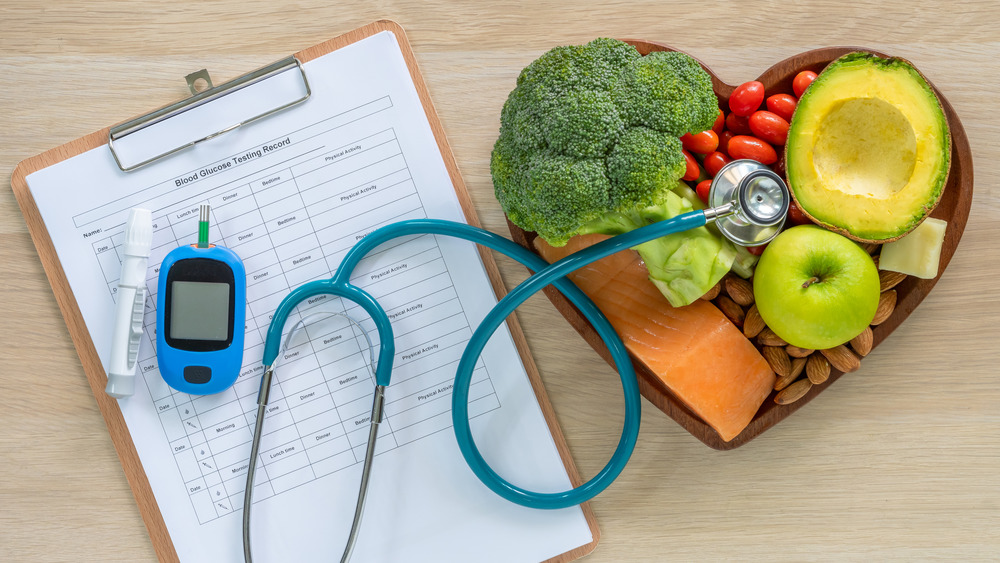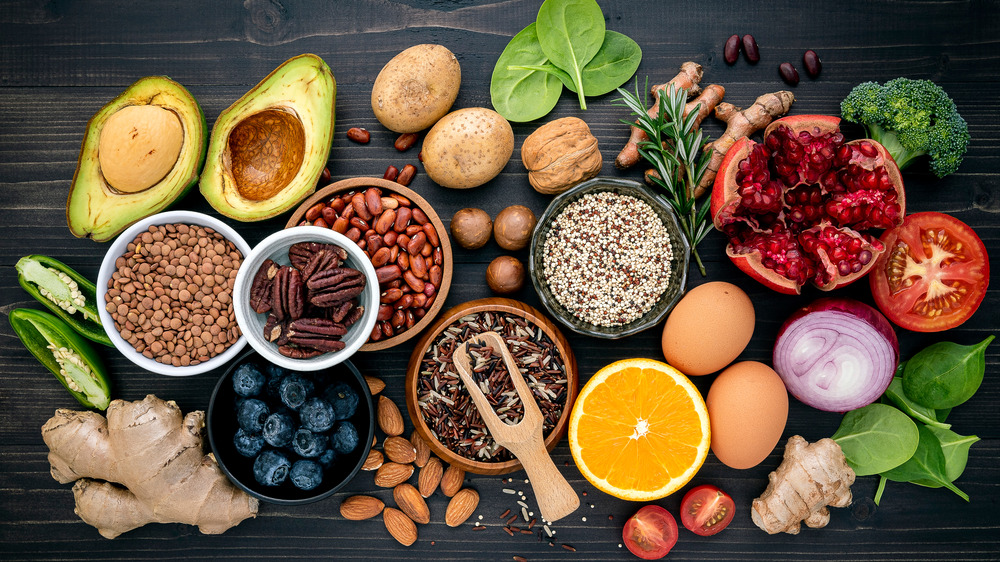What You Should And Shouldn't Eat If You Want To Prevent Heart Disease
Heart disease is the number one cause of death for both men and women in the United States, according to the Centers for Disease Control (CDC). But there are things you can do to protect against it. Eating a proper diet is key, and Health Digest spoke with Dr. Loretta Friedman, nutritionist at Synergy Health Associates, to find out specific ways to address your diet.
According to Friedman, recent research showed that even though mice on high-fat, high-protein diets didn't gain weight, there was 30 percent more plaque in their arteries. Mice that ingested low-protein, high-fat diets fared much better, so she recommends keeping protein intake low if you're sedentary. "That medium rare steak that you love so much or that pork dish you dream about has to be infrequent," she cautioned.
You can still enjoy healthy fats like olives and avocados, in moderation, if you keep your overall protein intake low, Friedman explained. Overall, avoid white foods like bread, sugar, potatoes, flour, and pastas. The exceptions to the white food rule are cauliflower, eggs, and coconuts.
Consider the role of inflammation
You want to target an anti-inflammatory diet, to promote good heart-health. "Anti-inflammatory diets reduce the inflammatory effects that can occur in the body with the wrong foods. Foods naturally rich in vitamins, antioxidants, and fiber, may help reduce the risk for cardiovascular disease," Friedman said.
All proteins except cold North Atlantic fish are inflammatory, with dairy as the biggest offender. Cold North Atlantic fish contains naturally occurring omega-3s, which act as an anti-inflammatory.
Stress can't be overlooked as a factor in heart disease, according to Friedman. "Stress is the biggest contributor to heart disease or any disease for that matter," she said. "Stress causes an increase in cortisol production from your adrenal glands. Elevated cortisol increases insulin production; these are both very inflammatory hormones pulsing through your vessels. This causes damage to the innermost lining of your blood vessels."
To combat the damage, the liver sends cholesterol to repair the lining of damaged blood vessels. "The vessels of the heart are so small, they get targeted first," said Friedman. "This causes coronary artery disease, and atherosclerosis."


